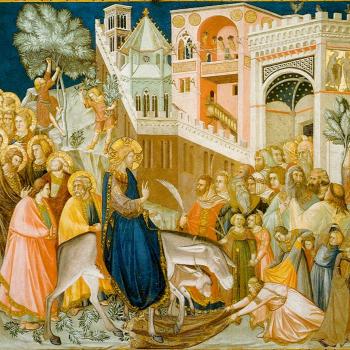Now Featured in the Patheos Book Club
The Covenants of the Prophet Muhammad with the Christians of the World
By John Andrew Morrow
Book Excerpt: Foreword
The two foundational sources of the Islamic tradition have always been the Holy Qur'an—the direct Word of Allah as revealed to his Prophet Muhammad, peace and blessing be upon him—and the prophetic hadith literature, the record of the sayings of Muhammad as remembered by his wives, his close companions, and others who had been in his presence and heard his words. (The tradition of sirah or prophetic biography is also important, but it has never held the same pre-eminent position as these two.) When, after the Prophet's death, his wife 'A'ishah was asked what his character was like, she answered: "It was exactly like the Qur'an."
With the publication of The Covenants of the Prophet Muhammad with the Christians of the World we may in fact be witnessing—unexpectedly, miraculously, at this extremely late date—the emergence of a third foundational source for Islam, one that is entirely consonant with the first two: the application of western methods of textual and historical research to the documents composed by the Prophet himself during his lifetime. These documents—letters, covenants, treaties etc.—while they have been known to a few scholars for many centuries, have been largely neglected by both traditional Muslim and modern western scholarship, and are virtually unknown to the mass of believers. One of the most valuable contributions of this work is that it represents a comprehensive treasury of rare, ancient, Islamic sources, many of which have been quite difficult to obtain. Rather than spend their time scouring European and Middle Eastern archives, scholars will now have all the sources they need to conduct further studies on the Covenants and advance our knowledge in this fascinating field. Not only has Dr. Morrow included the original primary sources in Arabic and Persian, he has provided corrected versions of most of these in modern Arabic typescript, along with a wide variety of translations for the purpose of comparative analysis. Consequently, the Covenants of the Prophet Muhammad with the Christians of the World represents a necessary and foundational resource and source of reference for all subsequent studies.
In many cases, textual criticism by modern secular scholars has had a negative effect on our understanding of the scriptures and traditions of the Abrahamic religions, at least from the standpoint of the believer. Differences in style and genre in texts traditionally attributed to a single writer are often parceled out to several writers—writers invented by the critics themselves—with little justification outside the unwarranted belief that no writer of ancient times could have commanded a spectrum of styles, used them for distinct purposes, or directed them to different audiences. And one effect of this prejudice has been the tendency to view a given sacred tradition as a kind of pastiche, accidentally, arbitrarily, or cunningly sewn together from God-knows-what mass of heterogeneous influences, usually for the purpose of pulling the wool over the eyes of the "ignorant masses." Needless to say, the notion that the Holy Qur'an could have been dictated, word for word, to the Prophet Muhammad, on specific known occasions, sometimes through the intermediary of the Angel Jibra'il, sometimes directly by Allah, is disallowed from the outset.
Dr. John Andrew Morrow has done us all the great service of applying the strict standards of western scholarship to the written documents of the Prophet Muhammad in the context of faith, not doubt. In these post-modern if not post-human times, we are used to thinking of "faith" as synonymous with prejudice, in the belief that only doubt can lead us to the truth, taking doubt as synonymous with "objectivity." Dr. Morrow, on the contrary, has brilliantly demonstrated how doubt is more often synonymous with scholarly dishonesty and prejudice, while faith is a light that—God willing—can show us things as they really are. Certainly faith can degenerate into the kind of compulsive belief that violates objective truth, but true faith—defined by St. Paul as "the presence of things hoped for, the evidence of things not seen"—can reveal to us realities that the narrow, tunnel-vision of doubt can never imagine, and therefore will never see. The scholar who has no faith in some order of truth beyond him or herself, or beyond the habitual notions of colleagues whose acceptance he covets and whose opposition he fears, is left with nothing but his own pre-conceived or self-interested concepts. On the other hand, the scholar who sees with the eyes of faith, and who is willing to let that faith challenge his own unconscious assumptions and received ideas, will have the humility—and also the courage—to accept, and let himself be in-formed by, new paradigms, new discoveries, and will never be scandalized by ancient truths. And in the field of religion particularly, the attempt of scholars who do not believe in the existence of God to present religion in a true light may be compared to the self-defeating struggle of some mythical physician to treat his patients when he does not believe in the existence of health. Those who would successfully study a particular object must first believe that it exists.




